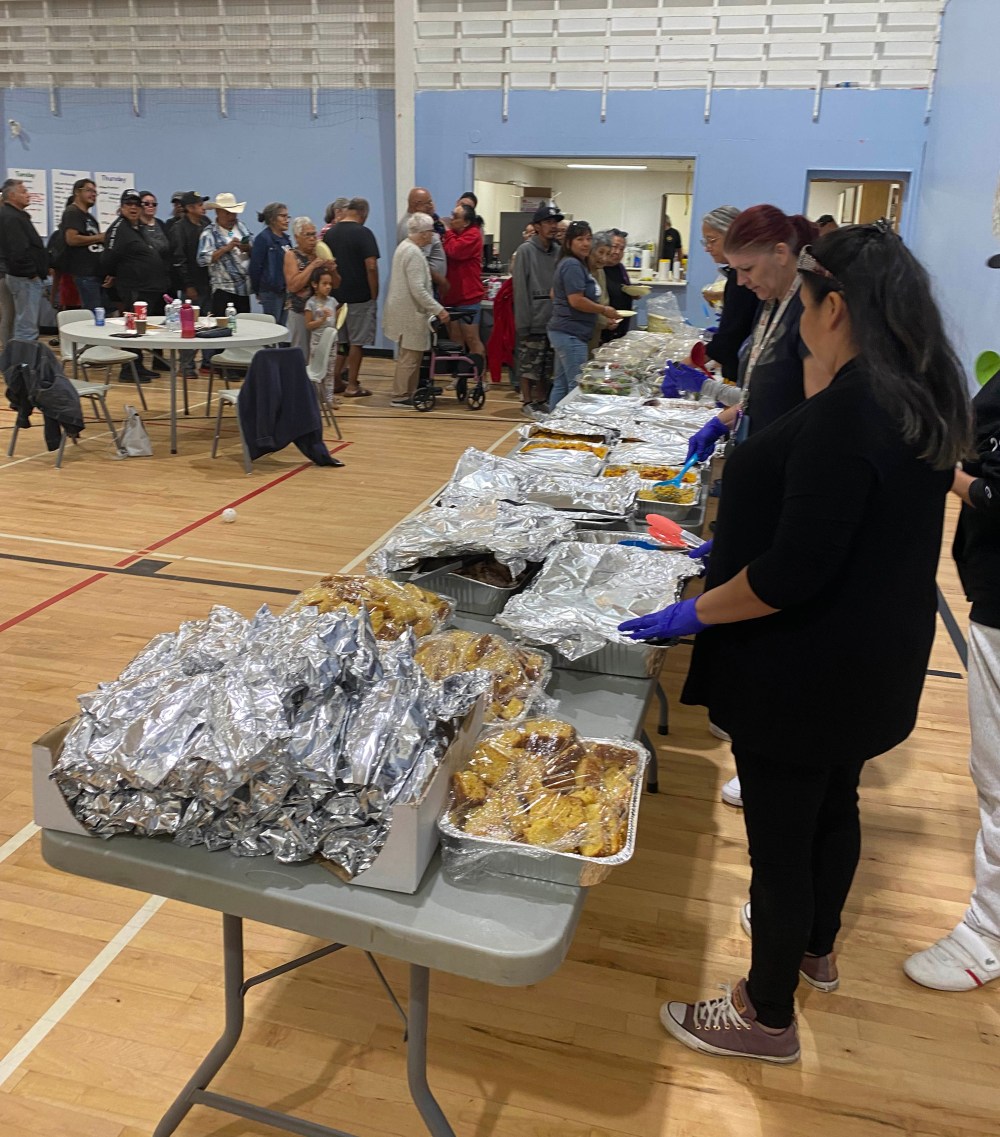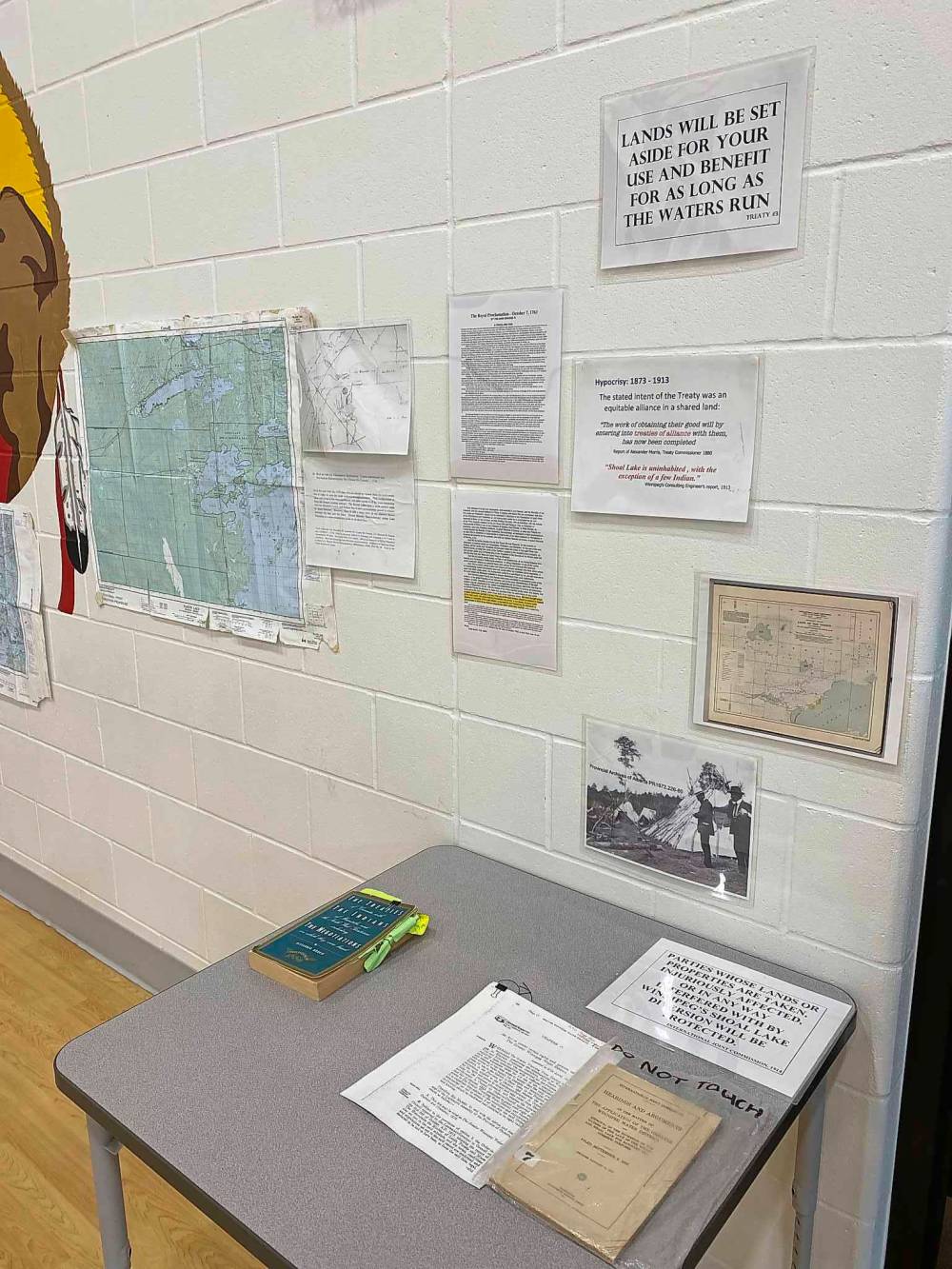Shoal Lake 40 rebuilds community links, eyes fight for future
Advertisement
Read this article for free:
or
Already have an account? Log in here »
To continue reading, please subscribe:
Monthly Digital Subscription
$0 for the first 4 weeks*
- Enjoy unlimited reading on winnipegfreepress.com
- Read the E-Edition, our digital replica newspaper
- Access News Break, our award-winning app
- Play interactive puzzles
*No charge for 4 weeks then price increases to the regular rate of $19.00 plus GST every four weeks. Offer available to new and qualified returning subscribers only. Cancel any time.
Monthly Digital Subscription
$4.75/week*
- Enjoy unlimited reading on winnipegfreepress.com
- Read the E-Edition, our digital replica newspaper
- Access News Break, our award-winning app
- Play interactive puzzles
*Billed as $19 plus GST every four weeks. Cancel any time.
To continue reading, please subscribe:
Add Free Press access to your Brandon Sun subscription for only an additional
$1 for the first 4 weeks*
*Your next subscription payment will increase by $1.00 and you will be charged $16.99 plus GST for four weeks. After four weeks, your payment will increase to $23.99 plus GST every four weeks.
Read unlimited articles for free today:
or
Already have an account? Log in here »
Hey there, time traveller!
This article was published 10/08/2023 (814 days ago), so information in it may no longer be current.
SHOAL LAKE 40 FIRST NATION — Laurie Barnard did something for the first time Tuesday most take for granted. She came home.
“I didn’t think I would get emotional when I turned onto the road,” Barnard said, tears in her eyes. “But I did.”
Barnard is one of dozens of Shoal Lake 40 citizens who returned to their ancestral territory this week to celebrate Treaty Days, a summer event in most First Nations that honours the signing of treaties and relationships humans and non-humans share in a place.

NIIGAAN SINCLAIR / WINNIPEG FREE PRESS
Citizens line up for the evening feast. The most popular food is fried fish, caught nearby that morning.
This year’s Shoal Lake 40 celebration, however, was different.
It was the first since its so-called “Freedom Road,” a 24-kilometre link connecting the community with the Trans-Canada Highway, opened in 2019 and ended its century-long isolation from the rest of Canada.
(COVID-19 pandemic restrictions had shut down local Treaty Days gatherings in the years since.)
In 1915, the community on the Manitoba-Ontario border was flooded and cut off from mainland so the city of Winnipeg could take its water via an aqueduct and the building of a channel.
For many decades, the community was only accessible via an ice road or a barge ferry from nearby Shoal Lake 39.
“I tried once to come to the community on the ice road,” Barnard said. “But the water broke and we had to turn back. That day broke my heart. I’ve never tried since.”
Like many Shoal Lake 40 citizens — many of which had been removed due to residential schools and child welfare workers, and moved by parents who saw little opportunity in isolation — Barnard can now travel home and visit whenever she wants.
“I met relatives this week I never even knew existed,” she said, adding a laugh. “I immediately recognized them though ‘cause they were so good looking.”
I arrive at the community hall as citizens finish a cribbage tournament and line up for the evening feast. The most popular food is fried fish, caught nearby that morning.
“I’ve been cooking walleye all week,” volunteer cook Roxanne Balan said. “I wanted to gift them a dish to bring them home.”
At the Shoal Lake 40 Treaty Days, youth play sports during the day, while sharing circles enable families to meet for the first time and narrate stories of where they’ve been in the long years before “Freedom Road.”
“I’ve had tears in my eyes listening to where everybody went,” Balan said.
The event also featured an unveiling of a plaque honouring the community’s new water treatment plant, opened in 2021. For 24 years, the community existed under a boil water advisory. Now, clean water flows to nearly every home on the reserve.
It was a celebration, but also a reminder of the violence the community has experienced.
Installed at newly-opened Harvey Redsky Memorial School is an exhibit called the “Museum for Canadian Human Rights Violations” — with photographs, letters and archival materials documenting the community’s century-long struggle for its members’ rights.
Community supporter Cuyler Cotton, who works as a policy analyst for Shoal Lake 40, compiled the exhibit.

NIIGAAN SINCLAIR / WINNIPEG FREE PRESS
Installed at newly-opened Harvey Redsky Memorial School is an exhibit called the “Museum for Canadian Human Rights Violations” — with photographs, letters and archival materials documenting the community’s century-long struggle for its members’ rights.
“This is a documentation of how Canada trampled on the rights of Shoal Lake and denied promises it had made for generations in order to take the water,” Cotton said. “This is not a story of Shoal Lake 40, but a story about genocide by Winnipeg, Manitoba, and Canada.”
Cotton is quick to point out the struggles of the community have only just begun. While Shoal Lake 40 has seen governments finally fulfill promises made since 1989 to invest in the community, there are serious issues with crumbling infrastructure, poor and outdated sanitation, and unresolved trauma.
Two weeks ago, local leadership launched a lawsuit against the City of Winnipeg and the government of Canada over the impact of the aqueduct and the many failed promises of support.
Diane Redsky, former executive director of Winnipeg’s Ma Mawi Wi Chi Itata Centre who has returned home to work for her community, said: “Elders say coming to Shoal Lake 40 is like stepping back in time.”
“Just as Winnipeg continues to take nearly a 100 million gallons a day,” Redsky said, “governments must return more than pennies on the dollar. The struggle to help Shoal Lake 40 isn’t over.”
As the sun begins to set, I am invited by Vernon Fair on his boat to see the infamous aqueduct that sends water on the 154-km trek to Winnipeg.
The boat is stopped in the middle of Indian Bay, far from the aqueduct. I ask him to go closer, so I can take a photo.
“I can’t,” Fair said. “The RCMP has set up a perimeter. The cops would come if I tried to go closer.”
We sit in the rocking boat, staring at the reason Shoal Lake 40 has been brutalized for more than a century.
I ask Fair what he is thinking.
“You’re welcome, Winnipeg,” he said. “Don’t forget us again.”
niigaan.sinclair@freepress.mb.ca

Niigaan Sinclair is Anishinaabe and is a columnist at the Winnipeg Free Press.
Our newsroom depends on a growing audience of readers to power our journalism. If you are not a paid reader, please consider becoming a subscriber.
Our newsroom depends on its audience of readers to power our journalism. Thank you for your support.




.jpg?w=100)
